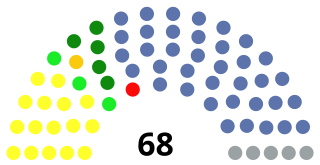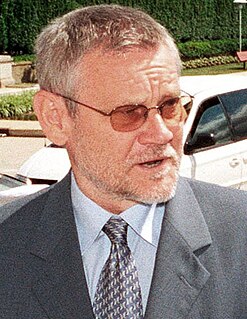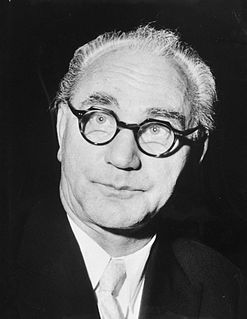| |||||||||||||||||||||
| Turnout | 54.62% | ||||||||||||||||||||
|---|---|---|---|---|---|---|---|---|---|---|---|---|---|---|---|---|---|---|---|---|---|
| |||||||||||||||||||||
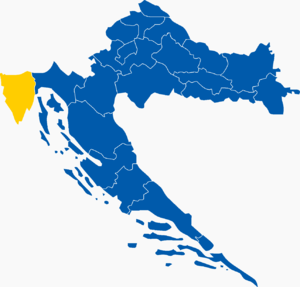 Results of the first round in all of Croatia's counties: the candidate with the majority of votes in each administrative division. Franjo Tuđman Zdravko Tomac Vlado Gotovac | |||||||||||||||||||||
| |||||||||||||||||||||
Presidential elections were held in Croatia on 15 June 1997. [1] They were the second presidential elections held since independence in 1991. The result was a victory for incumbent president Franjo Tuđman, the leader of the Croatian Democratic Union party (HDZ), who received 61.40% of the vote and was re-elected to a second five year term. As Tuđman received a majority of the valid votes cast on election day there was no need for a run-off. President Tuđman received a plurality of the votes in 20 of Croatia's 21 counties, while Vlado Gotovac did so in Istria County.

Croatia, officially the Republic of Croatia, is a country at the crossroads of Central and Southeast Europe, on the Adriatic Sea. It borders Slovenia to the northwest, Hungary to the northeast, Serbia to the east, Bosnia and Herzegovina, and Montenegro to the southeast, sharing a maritime border with Italy. Its capital, Zagreb, forms one of the country's primary subdivisions, along with twenty counties. Croatia has an area of 56,594 square kilometres and a population of 4.28 million, most of whom are Roman Catholics.

Franjo Tuđman, also written as Franjo Tudjman, was a Croatian politician and historian. Following the country's independence from Yugoslavia he became the first President of Croatia and served as president from 1990 until his death in 1999. He was the 9th and last President of the Presidency of SR Croatia from May to July 1990.

The Croatian Democratic Union is a conservative political party and the main centre-right political party in Croatia. It is one of the two major contemporary political parties in Croatia, along with the centre-left Social Democratic Party (SDP). It is currently the largest party in the Sabor with 55 seats. The HDZ ruled Croatia from 1990 after the country gained independence from Yugoslavia until 2000 and, in coalition with junior partners, from 2003 to 2011, and since 2016. The party is a member of the European People's Party (EPP). HDZ's leader, Andrej Plenković, is the current Prime Minister of Croatia, having taken office following the 2016 Parliamentary Election.
Voter turnout in the election was 54.62%, which was a large decline from the 74.9% turnout registered five years previous. Furthermore, about 459.000 fewer votes were cast in comparison to the previous election in 1992. [2] The elections also featured the smallest number of presidential candidates to date, with only three taking part: Franjo Tuđman, Zdravko Tomac and Vlado Gotovac. The margin of victory (over 40%) is also the largest in any election to date.
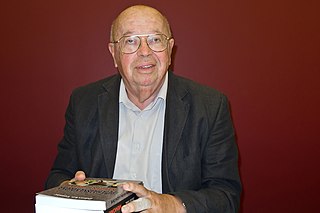
Zdravko Tomac is a Croatian politician.

Vladimir "Vlado" Gotovac was a Croatian poet and politician.
Tuđman took the oath of office for a second term on 5 August 1997 at Saint Mark's Square. However, he served only a little more than two years of his new 5-year term, as he died on 10 December 1999, resulting in early elections being called for January 2000. Vlatko Pavletić assumed the post of Acting President as the Speaker of the Croatian Parliament.
St. Mark's Square is a square located in the old part of Zagreb, Croatia, called Gradec or Gornji grad.

Vlatko Pavletić was a Croatian politician, university professor, literary critic and essayist.






